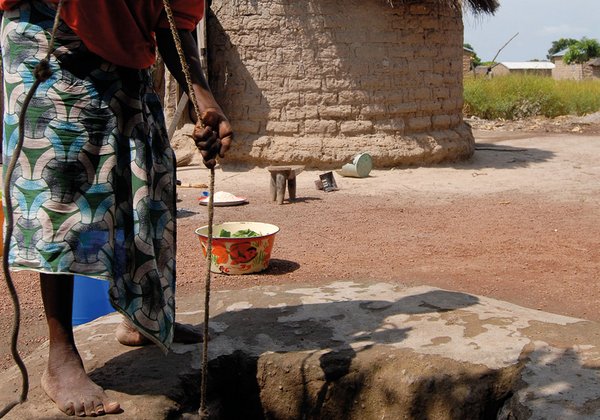 Download this article in magazine layout
Download this article in magazine layout
- Share this article
- Subscribe to our newsletter
Groundwater management: significance of rural well drillers underrated
Groundwater is seen as a key factor in achieving the Sustainable Development Goals of the United Nations, given its significance e.g. in maintaining river base flow and preventing seawater intrusion, but also as a solution in the context of climate change adaptation. Falling groundwater levels and deteriorating water quality in some regions call for action based on a sound understanding of local contexts. Water well drillers are particularly familiar with conditions on the ground. According to a survey by Uyoyoghene Traoré of drillers’ associations in six countries, drillers can play a major role in influencing policies and urging governments to address water issues. The survey was conducted as part of the 2018 Young Professional Engagement Strategy run by the Rural Water Supply Network (RWSN; see box at the end of the article).
Looking at Angola, Burkina Faso, Mozambique, Nigeria, Uganda and the USA, the survey “Challenges of Water Well Drillers & Water Well Drillers Associations” highlights the difficulties that drillers face, especially in the five African countries under review. In the latter, lack of capacity, both among drillers and institutions, to implement policies and lack of funding for water well monitoring appear to represent major problems. Moreover, little awareness has developed of the contribution that groundwater makes to sustaining livelihoods in these countries.
Non-payment of drillers for dry boreholes based on so-called “turnkey contracts” is a further critical issue in all but one of the reviewed African countries, namely Angola. Furthermore, absence of hydrological data in Angola, Burkina Faso, Mozambique and Nigeria can result in errors in estimating the drilling effort in difficult terrain. In addition, a single pricing system is often used for all wells, regardless of terrain, all of which leaves the drillers with a high entrepreneurial risk and low-quality jobs. Nigeria and the USA were the only countries that did not mention the issue of delayed payment of contracts in the survey.
Out of the six countries surveyed, only the USA, Nigeria and Uganda have associations that are confirmed to be active and currently operating, while those in Burkina Faso and Mozambique appear to be dormant and Angola has an informal group for drillers. One challenge that all associations share is a lack of interest among non-members, be it because the latter see no benefits from membership or need for getting organised or because there are no incentives for them. Second, the sustainability of the associations in the African countries is frequently under threat owing to a lack of finance, which may be due to low membership levels, a lack of support from development agencies or the absence of dedicated professionals to run their affairs. Third, except for the USA, wherever organisations do exist, they tend to lack transparency, also because they do not have the means to employ external auditors. Finally, again with the exception of the USA, there is a lack of continuous capacity building of members. The survey also points to a generation gap of experts in the water well drilling sector.
Summing up, the survey emphasises the potential that water drillers associations hold for achieving the water targets of the SDGs. Associations can create a platform to engage with governments and other stakeholders and help to easily identify challenges. They can back and organise capacity building programmes for drillers and support the adoption of the latest technologies in the water sector as well as the setting of realistic prices for services. In particular, with their wealth of information, they can actively accompany the collection of data, which is urgently required for the water sector in Africa in particular.
Based on its findings, the survey makes a number of recommendations for water drillers and their associations regarding the sustainable management of groundwater resources. It sees a need for establishing associations and rekindling non-active ones and also for capacity building in terms of the technical and managerial skills of water well drillers. In the latter area, a sustainable platform for continuous professional management ought to be put in place. The survey stresses the urgency of drawing the attention of national institutions to groundwater issues. A global platform of young professionals could be created aimed at deepening understanding and awareness of youth from different countries regarding groundwater issues. And in the longer term, a global platform could be established for drillers, experts and institutions working on groundwater issues aimed at learning and sharing best practices.
The Rural Water Supply Network
The Rural Water Supply Network (RWSN) seeks to contribute to achieving access for all rural people across the world to sustainable and reliable water supplies which can be effectively managed to provide sufficient, affordable and safe water within a reasonable distance of their homes. It stresses collaboration and learning as key to eliminating poverty, and its mission and values align with UN Sustainable Development Goal 6. The RWSN links rural water supply professionals and organisations across the world who are committed to improving their knowledge, skills and professionalism and to focusing on water user needs.
More information: https://rural-water-supply.net/en/
Mike Gardner is a freelance journalist based in Bonn, Germany.
Contact: mike.gardner(at)zaehlwerk.net




